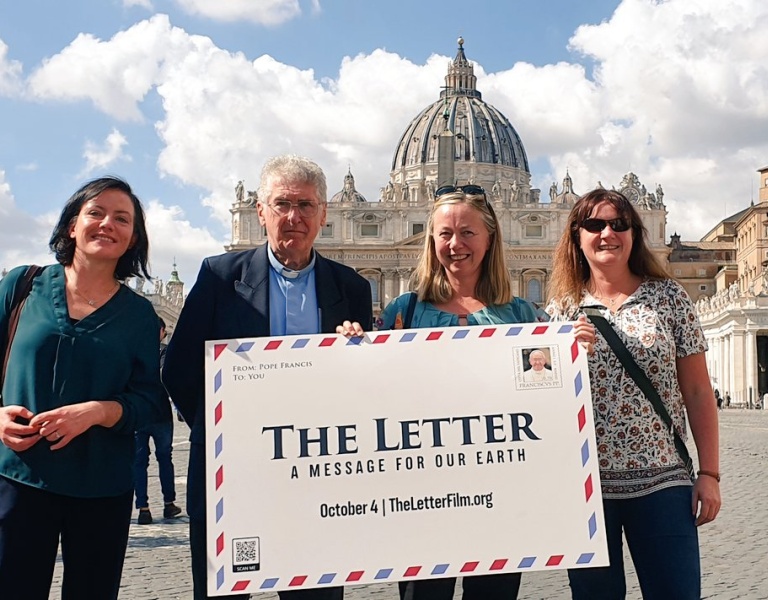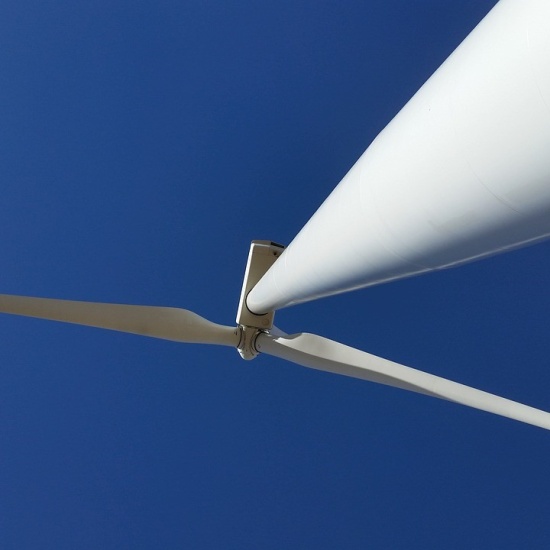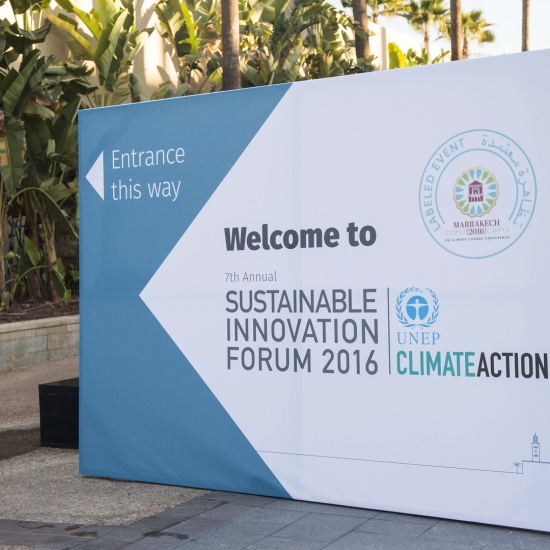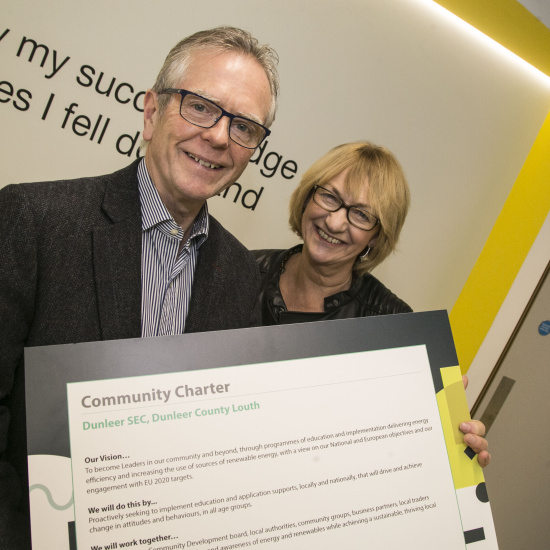How faith can contribute to address the Climate Crisis
Dr. Lorna Gold, Environmental Activist and Author, of global faith-based organisation FaithInvest, shares her perspective on COP27 and details her organisation's Climate-focused film "The Letter" being launched in Ireland this month

COP27 has just concluded in Sharam El Sheik and whilst the outcome is adequate in certain areas, once again, the distance between the declared intentions, the science and the needed policy action, is wanting.
Leaders will return to their own countries to do their best, on the most part, to mobilise society for change, but unless there is a dramatic and intentional change of gear - and frankly, a move to a new way of managing our global economy - it is almost impossible to achieve the emissions reductions on time.
Yet again, civil society is left in a quandary about how best to mobilise for change.
In my podcast episode for SEAI's 180 Degrees Climate Action Podcast, and here too, I would like to make the case that one significant potential line of action - which has not been truly explored yet - remains in the fight for climate action.
It is the deep engagement of the world's faiths and the vast and diverse communities they represent.
Faith is too easy to dismiss in our western culture, rooted in pluralism and tolerance of difference. There is a lot to be said for open, liberal societies where there is mutual respect and regard for a variety of worldviews, many of which we may not share but choose to co-exist with in mutual respect. Cultural diversity has brought incredible riches to societies, which is truly cause for celebration.
In the lightning-paced shift to this pluralistic worldview, particularly in Ireland, it can seem at times like the 'old' view of faith is an anachronism. At most, it is a personal, private issue and not exactly relevant to public life in any meaningful way.
I was reminded of this recently by my teenage son who told me emphatically that religion was useless, particularly in relation to fighting climate change, and all we needed to combat the climate crisis was science. His clear message to me was "Move on mum, get with Generation Z."
It is not only a view held by Generation Z, but an undercurrent that permeates much of society.
Faith and religion have got a bad rap in recent times, and of course there are many forms of religious beliefs and practices which sit very uneasily or are at odds with a liberal worldview. Similarly, there are certain mistakes and perversions of religion, such as abuse and homophobic attitudes that need to be called out and addressed.
"I would like to make the case that one significant potential line of action remains in the fight for climate action -It is the deep engagement of the world's faiths and the vast and diverse communities they represent."
In the midst of this uneasy co-existence, and at times hostility to faith, all too often, the power and potential of faith to accelerate and amplify climate action is lost.
According to Pew Research on Religious Futures, over 80% of the world's population identify as belonging to different faith traditions and this is growing in many parts of the world!
Many of these people are leaders in climate action already, but many are also deeply sceptical. The question we need to ask is, whether side lining this area of the collective human experience is something that's truly a big loss for society and indeed the world in our fight against climate change. We clearly need to engage society more widely to take the urgent action necessary to turn the climate crisis around.
I have been working with faith groups in Ireland and across the world for the last decade to foster climate action of the faithful and I am more convinced than ever before that engaging faiths is key to bringing about the scale of the change we need in the tight timeframes we face.
I say this for three reasons. Faiths can bring three things which no other parallel institution can bring at this juncture in human history.
Faith institutions matter - they have scale, they are global
Faith institutions matter. They control significant assets. According to the Atlas of World Religions, it is estimated that faiths own or control at least 12% of the planet's land surface area. Put in another way - if all the property and land of the faiths were a country, it would roughly be the size of Russia. What faiths therefore choose to do with that land, has a material impact.
Faiths, moreover, are significant financial investors. Statistics in this area are notoriously hard to assess, and studies notoriously undervalue the financial assets of faiths - but a recent study by Oxford University estimated that faiths control well in excess of $5 trillion in investments globally. This is a very conservative estimate, but should not be surprising given the sheer number of people who are 'employed' by faiths as an occupation, as well as the significant stakes they traditionally have in a broad range of sectors such as healthcare, all levels of education, media and food distribution. Faiths distribute the largest amount of food on a daily basis.
I could continue, but the key point is that faiths are not simply preachers, nuns and monks, but are critical stakeholders with a global reach and the economic choices they make matter to the future of the planet.
All faiths have committed to ecological action - rooted in different values
Besides, on paper at least, faiths should be at the very forefront of climate action - because every major religion has committed in recent years to caring for the Earth as a core belief. In 2021, ahead of COP26 all faiths committed to applying their principles through bold sustainability plans and aligned investments.
Whilst faiths have worked on ecology for many decades, Pope Francis has led the way on this in many respects in recent years. His ground-breaking 2015 encyclical letter, 'Laudato Si' - On Care for our Common Home, calls on us all to 'hear 'the cry of the earth and the cry of the poor'. It has inspired the creation and growth of the Laudato Si Movement and multi-faith groups like FaithInvest, which strive to bring a message of hope to all, to come together and care for our common home.
The Pope's Letter has now been turned into a feature documentary film 'The Letter - A Message for our Earth', which follows five people from different parts of the world who receive an invitation to visit the Pope to engage in dialogue about the future, including a climate refugee from Senegal and a teenage activist from India. Together they discover the universal message of active hope that comes from deep dialogue.
On November 30th, Irish President Michael D. Higgins launched the Irish premiere of The Letter with a showing of the film at Arás an Uachtaran.
Faith moves people in ways nothing else does
Finally, faith remains a deep-rooted source of spiritual inspiration and wellspring of purpose for the vast majority of people on the planet. It is a motivational force like no other. At its best, faith engages people as individuals and communities, to reflect on their purpose in a way that energises and builds hope.
Far from being a counter to science, recent research has really pointed to a complementarity between science and religion, with each seeking to answer the same big and important questions on different levels. Open dialogue between these two areas is essential.
Harnessing this hope born from faith can help galvanise efforts against what is the greatest challenge of our age.
Related Links
- You can watch 'The Letter' film, produced by YouTube Originals in partnership with the Laudato Si' Movement and Oscar-winning producers Off the Fence in its entirety on YouTube by clicking here
- You can listen back to Episode #6 of Season 4 of SEAI's 180 Degrees Podcast featuring Dr. Lorna Gold in conversation Jim Scheer of the SEAI by clicking here



